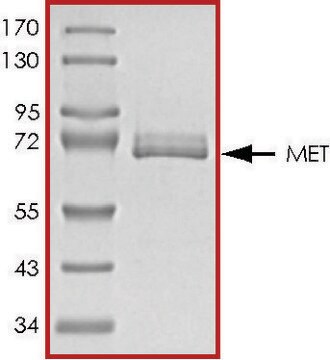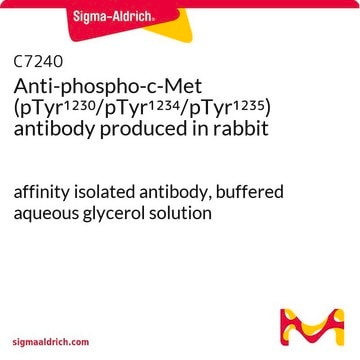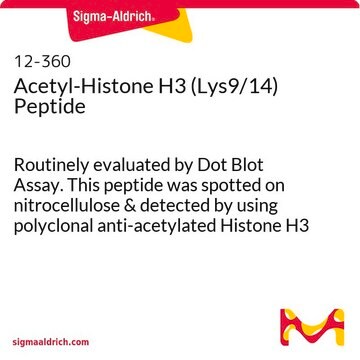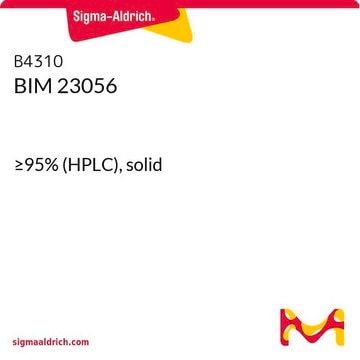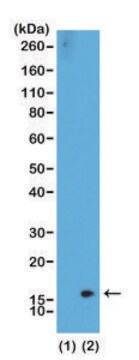07-810
Anti-phospho-Met (Tyr1230/Tyr1234/Tyr1235) Antibody
Upstate®, from rabbit
Synonyme(s) :
c-Met, cmet, HGFR, RCCP2, met proto-oncogene (hepatocyte growth factor receptor)
About This Item
Produits recommandés
Source biologique
rabbit
Niveau de qualité
Forme d'anticorps
affinity purified immunoglobulin
Type de produit anticorps
primary antibodies
Clone
polyclonal
Produit purifié par
affinity chromatography
Espèces réactives
mouse, human
Réactivité de l'espèce (prédite par homologie)
rat (based on 100% sequence homology)
Fabricant/nom de marque
Upstate®
Technique(s)
immunocytochemistry: suitable
immunofluorescence: suitable
western blot: suitable
Isotype
IgG
Numéro d'accès NCBI
Numéro d'accès UniProt
Conditions d'expédition
dry ice
Modification post-traductionnelle de la cible
phosphorylation (pTyr1230/pTyr1234/pTyr1235)
Informations sur le gène
human ... MET(4233)
mouse ... Met(17295)
rat ... Met(24553)
Spécificité
Immunogène
Application
Qualité
Description de la cible
Informations légales
Vous ne trouvez pas le bon produit ?
Essayez notre Outil de sélection de produits.
Code de la classe de stockage
12 - Non Combustible Liquids
Classe de danger pour l'eau (WGK)
WGK 2
Point d'éclair (°F)
Not applicable
Point d'éclair (°C)
Not applicable
Certificats d'analyse (COA)
Recherchez un Certificats d'analyse (COA) en saisissant le numéro de lot du produit. Les numéros de lot figurent sur l'étiquette du produit après les mots "Lot" ou "Batch".
Déjà en possession de ce produit ?
Retrouvez la documentation relative aux produits que vous avez récemment achetés dans la Bibliothèque de documents.
Notre équipe de scientifiques dispose d'une expérience dans tous les secteurs de la recherche, notamment en sciences de la vie, science des matériaux, synthèse chimique, chromatographie, analyse et dans de nombreux autres domaines..
Contacter notre Service technique